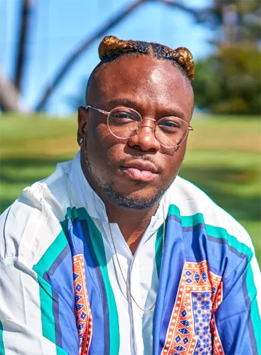
c.2022, Abrams Press
$28.00
306 pages
That song.
It always makes you want to dance with somebody. It gets your feet shuffling and your behind bouncing and the lyrics pour out of your mouth. And that singer who first sang it to you…? You know what happened to her, but in “Didn’t We Almost Have It All?” by Gerrick Kennedy, you’ll get a few more pieces of the puzzle.
She died two days after he met her “in a room inside the Beverly Hilton…”
Gerrick Kennedy fell in love with Whitney Houston in a movie theater when he was just five years old. He purchased her music as a teen, followed her career closely, he met her once, and even now, his partner knows whose music is blasting when he sees Kennedy “floating away” with “earbuds poking out of my ears.” Now, nearly ten years since her death, Kennedy believes it’s time for a reckoning.
“We missed so much the first time around,” he says, and we need to look at Houston’s contribution to “our dialogue around celebrity, addiction… mental illness, and Blackness in America…”
“To fully appreciate the anointing that graced Whitney’s voice, it’s essential to understand the almighty power of Cissy Houston.”
Indeed, Houston learned at her mother’s knee about God and gospel music – knowledge that came from a far-back source: Cissy’s parents put church and choir center in her life. God was a beacon to Whitney, and other musical talents – cousins Dee Dee and Dionne Warwick and “auntie” Aretha – further guided the young Houston.
Her first album rose to Number One on the charts; “She was on fire out the gate…” says Kennedy. Most people remember the power of her biggest hit, that “BOOM,” he says, before Houston’s voice soars, but a combination of drugs, bad decisions, and a bad relationship plagued her toward the end of her life. We watched “in horror” as she slid and “By the early aughts we were all watching, waiting… for the worst to happen…”
In his introduction, author Gerrick Kennedy indicates that he wanted his book about Houston to be different from all the others, more meaning, less trouble.
He succeeded. To a point.
It’s difficult to extricate Houston the icon from Houston the megastar – they are mostly one in the same – and stepping back two generations or profiling other singers and music executives doesn’t help as much as Kennedy asserts. That stuff is all fluff; interesting, but covered elsewhere.
The best part of “Didn’t We Almost Have It All?” comes in the latter third of the book. It’s there that Kennedy examines the depth of Houston’s contributions and the “meaning” of her decline and death to the Black community. There’s a lot of introspection in it, as well as a shift in how we think about our celebrities.
Tackle “Didn’t We Almost Have It All?,” therefore, and you can expect to see things you already know, but you can also expect to be delighted. It’s a fan’s book, for sure, and reading it might be the greatest love of all.

